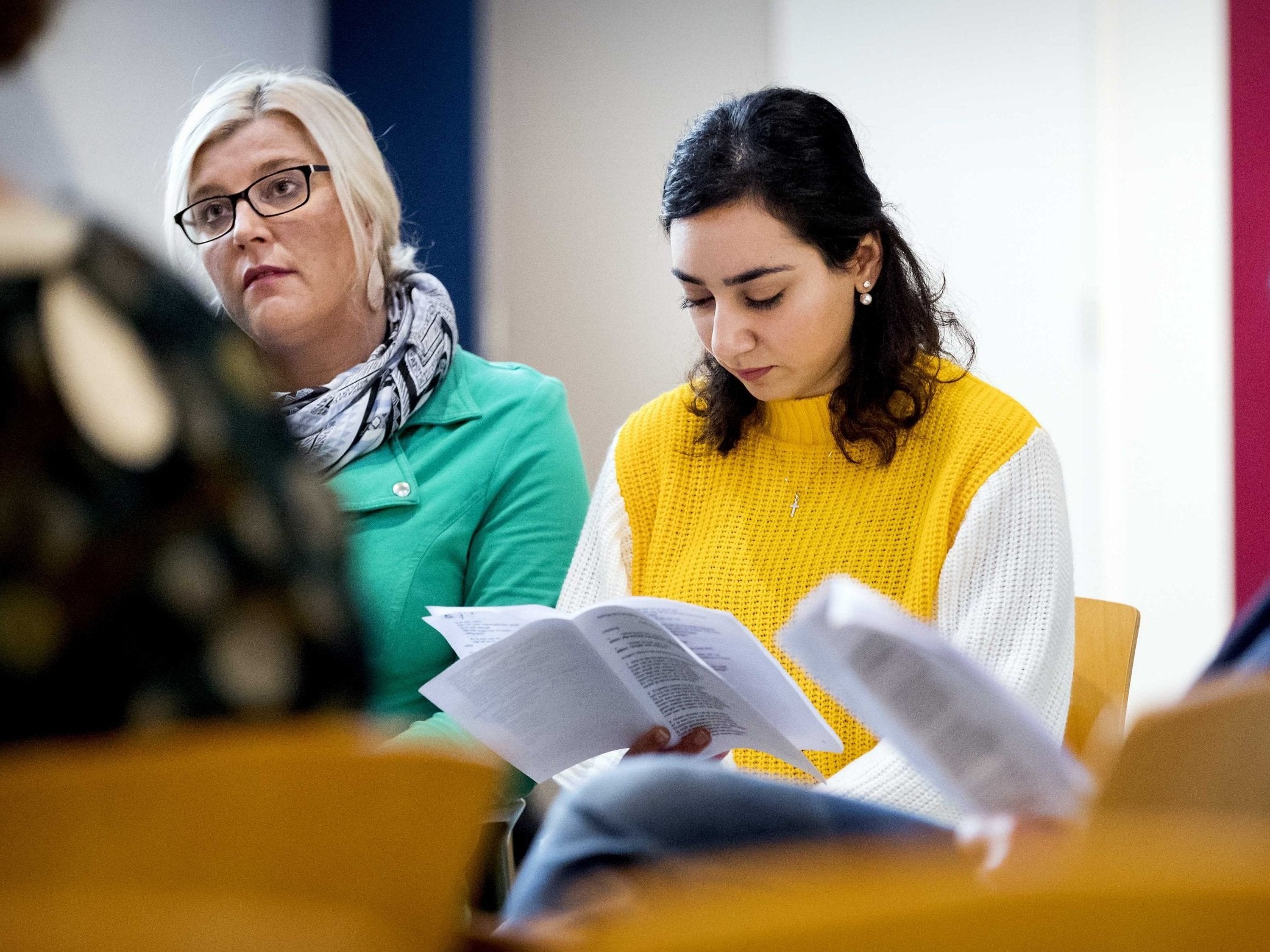Family shielded from deportation in Dutch church for three months finally granted asylum
The Tamrazyans were granted asylum as Holland cuts its intake of refugees by a third.

Your support helps us to tell the story
From reproductive rights to climate change to Big Tech, The Independent is on the ground when the story is developing. Whether it's investigating the financials of Elon Musk's pro-Trump PAC or producing our latest documentary, 'The A Word', which shines a light on the American women fighting for reproductive rights, we know how important it is to parse out the facts from the messaging.
At such a critical moment in US history, we need reporters on the ground. Your donation allows us to keep sending journalists to speak to both sides of the story.
The Independent is trusted by Americans across the entire political spectrum. And unlike many other quality news outlets, we choose not to lock Americans out of our reporting and analysis with paywalls. We believe quality journalism should be available to everyone, paid for by those who can afford it.
Your support makes all the difference.A 96-day service held at a Dutch church to save an Armenian family from deportation achieved its goal, after the government said they would be be allowed to stay in the Netherlands.
The non-stop vigil at The Hague’s Bethel church for the Tamrazyan family ended with an intimate sermon.
"We are extremely grateful for a safe future for hundreds of refugee families in the Netherlands,” said church chairman Theo Hettema. “For months we have held up hope and now that hope is taking shape."
The Dutch government provisionally agreed that 700 families could have their deportation cases reassessed, after political pressure mounted from campaigners and politicians as the church service continued.
However, it has nonetheless stated its aim to tighten asylum regulations and has gained concessions from the United Nations to cut the country's annual intake of refugees from 750 to 500.
Sasun and Anousche Tamrazyan were reportedly forced to flee Armenia with their three children Hayarpi, 21, Warduhi, 19, and Seyran, 15, after Sasun received death threats for his political activism.
They arrived in the Netherlands in 2010 and have lived there ever since.
But their asylum status was overturned in September after a five-year procedure and they failed with an appeal under a Dutch ruling called Kinderpardon (Children’s Pardon), which protects the rights of children who have lived there with asylum for five years or more.
After the Tamrazyans were notified of their deportation, the church decided to protect the family using a medieval law that prevents authorities from entering churches during religious services.
Hayarpi expressed her gratitude to all those involved with the service yesterday. She said she was keen to resume studying economics at university.
The Dutch government are currently debating Kinderpardon, with Prime Minister Mark Rutte’s party keen to abolish it.
As in the case of the Tamrazyan family, few appeals to invoke the law were ever successful.
Legal advisor at Defence for Children, Martina Goeman, told The Independent that due to the current State Secretary Mark Harbers’ “restrictive view”, more than 90 per cent of applications for Children’s Pardon are rejected.
During a debate over two Armenian children seeking Kinderpardon in October, Mr Harbers said it was “precisely the intention” that not many children qualified.
The church said more than 1,000 people took part in the vigil Tamrazyan family which became something of a pilgrimage for people across the country.
While the sermon has been pivotal in putting pressure on the government, officials in more than 150 municipalities also sent letters to the State Secretary asking for children living in their locality not to be deported.
In December, 38 professors signed a letter by Erik Scherder, explaining to the government the psychological damage caused to children by instability in their asylum status.
However, the government’s U-turn came too late for another Armenian family, the Grigoryans, who were deported last week and are currently trying to overturn the decision.
"That hurts," father Hovik told RTL Nieuws from Yerevan, Armenia. "All five of us are sleeping on mattresses on the floor. It is cold and we have nothing. The children are not doing well. They don't speak the language and they miss the Netherlands, their home."
Speaking of the government's decision to cut its intake of refugees, Ms Goeman said: “It’s clearly a symbolic thing, because refugees and the children already integrated into the Netherlands have nothing to do with each other. The government talk as if they need to make room for these children - the children were already here so why would you not have these refugees come to the Netherlands?"
Join our commenting forum
Join thought-provoking conversations, follow other Independent readers and see their replies
0Comments